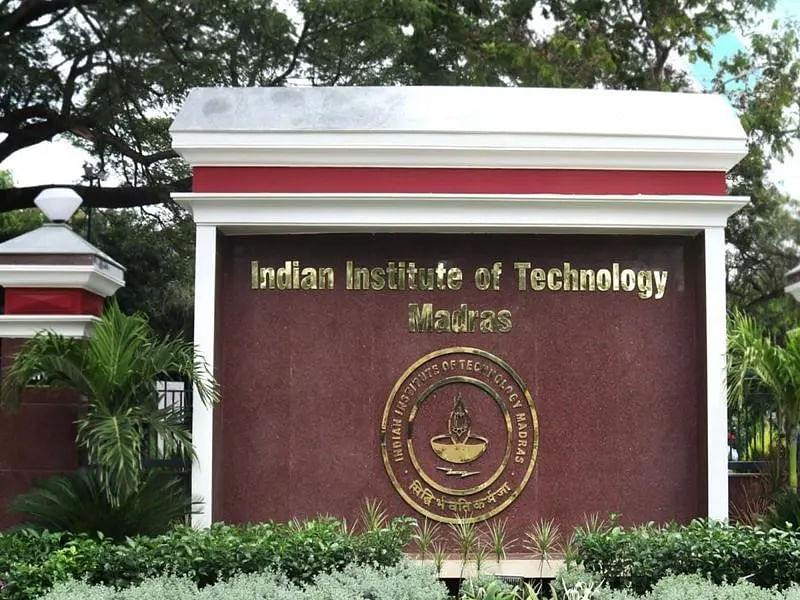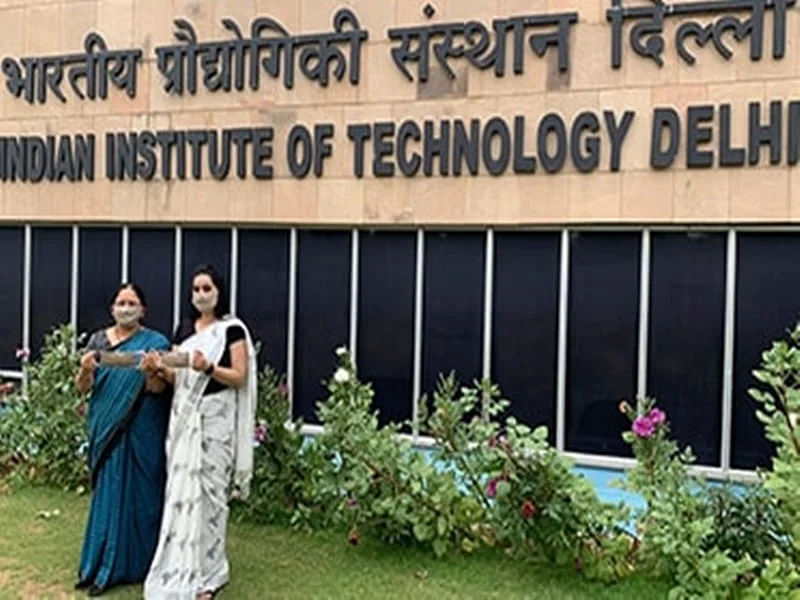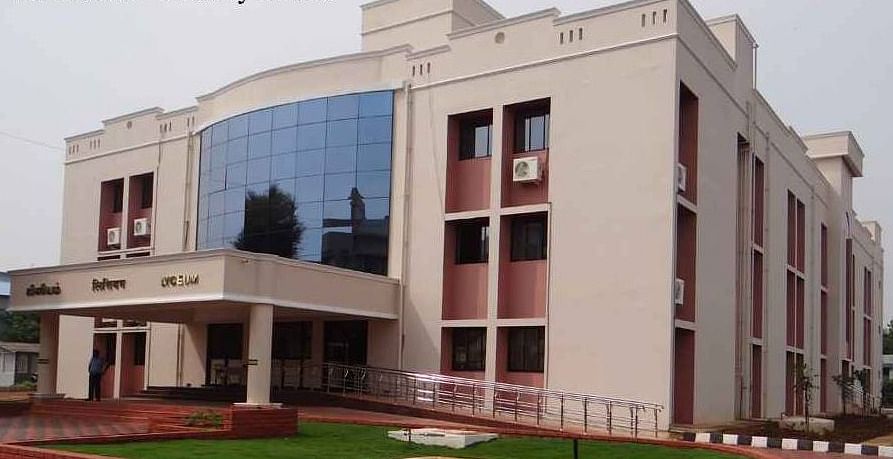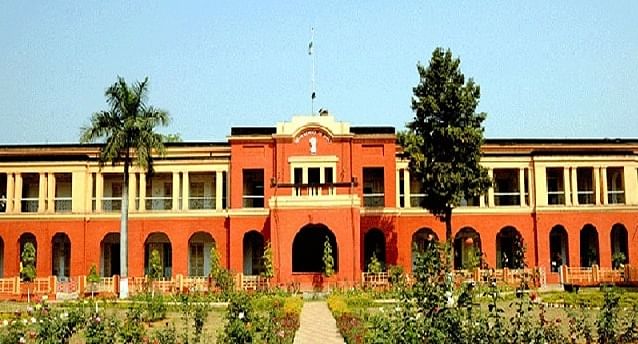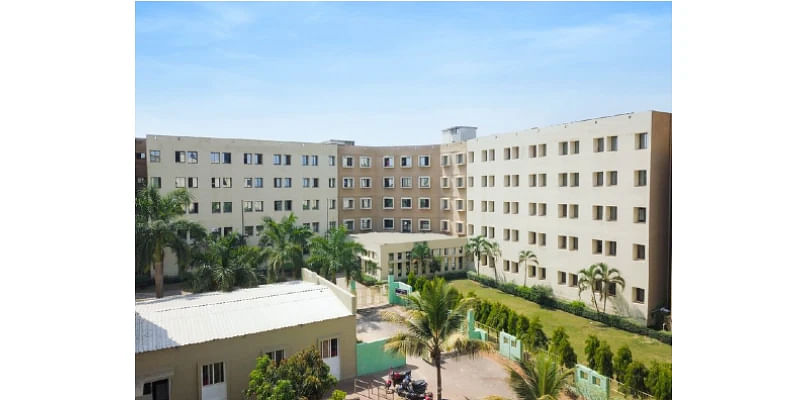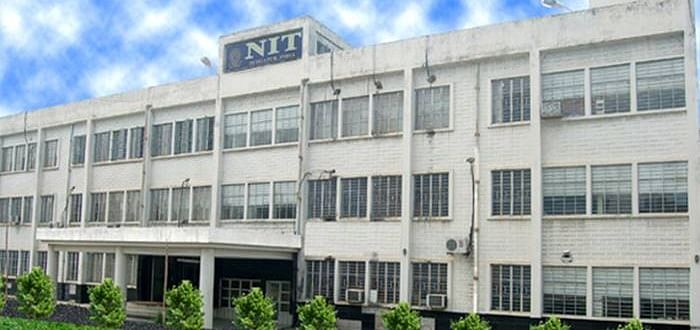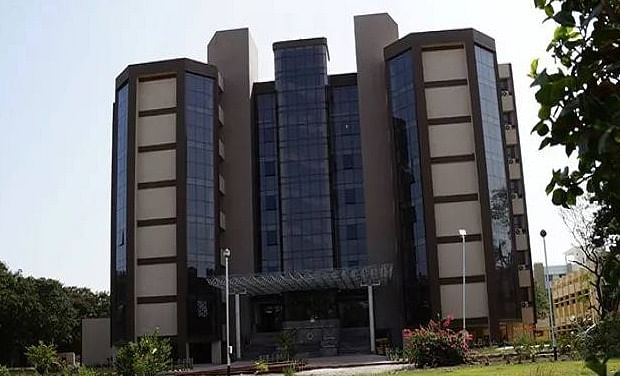M.Tech Power Electronics

M.Tech Power Electronics course is a two year long postgraduate course that deals with electrical thermal, electromechanical, electromagnetic, circuit, control and system design. M.Tech in Power Electronics provides fundamental principles about power electronics along with current practices and modern applications M.Tech Power Electronics job opportunities are in the aviation industry, power industry, VLSI design, home appliances and many other sectors. Graduates of this course can start their career with job roles such as Scientist, Junior Engineer, Assistant Engineer, Assistant Professor, Senior Management Staff, Grade II Technician.
Table of Contents
- About M.Tech Power Electronics
- How To Get Admission for M.Tech Power Electronics?
- Popular Entrance Exams for M.Tech Power Electronics
- Top 10 B.Com M.Tech Power Electronics Colleges in India
- Fee Structure for M.Tech Power Electronics
- Syllabus and Subjects for M.Tech Power Electronics
- Why Choose M.Tech Power Electronics?
- Scope For Higher Education
- Salary of a M.Tech Power Electronics Graduate
- Career Options After M.Tech Power Electronics Graduation
- Skills That Make You The Best M.Tech Power Electronics Graduate
M.Tech Power Electronics Course Details
| Degree | Masters |
| Full Form | Master of Technology in Power Electronics |
| Duration | 2 Years |
| Age | No specific age limit |
| Minimum Percentage | 50-60% |
| Average Fees | ₹50K - 1.5 LPA |
| Average Salary | INR 3.5 - 5 LPA [Payscale] |
| Employment Roles | Scientist, Junior Engineer, Assistant Engineer, Assistant Professor, Senior Management Staff, Grade II Technician |
| Top Recruiters | General Electronic Co, Robert Bosch Engineering and Business Solutions Ltd, Cisco Systems Inc, Wipro |
About M.Tech Power Electronics
Wikipedia explains Power Electronics as, “Power electronics is the application of solid-state electronics to the control and conversion of electric power. The first high power electronic devices were made of mercury-arc valves. In modern systems, the conversion is performed with semiconductor switching devices such as diodes, thyristors, and power transistors such as the power MOSFET and IGBT. In contrast to electronic systems concerned with transmission and processing of signals and data, in power electronics substantial amounts of electrical energy are processed. An AC/DC converter (rectifier) is the most typical power electronics device found in many consumer electronic devices, e.g. television sets, personal computers, battery chargers, etc. The power range is typically from tens of watts to several hundred watts. In industry, a common application is the variable speed drive (VSD) that is used to control an induction motor. The power range of VSDs start from a few hundred watts and end at tens of megawatts.” This course falls under the umbrella of M.Tech.
Eligibility Criteria for M.Tech Power Electronics
M.Tech Power Electronics admission in India is possible if the aspirants ensure that they meet the eligibility criteria. The M.Tech Power Electronics eligibility includes students need to ensure that they give the entrance exams required by the college. Additionally, they must get the minimum aggregate marks required for admission in their undergraduate degree. The entrance exam is conducted both at the national and college level. M.Tech minimum age limit to apply for the course is 25 years.
How To Get Admission for M.Tech Power Electronics?
The admission in the M.Tech Power Electronics course is given to the students based on the marks they obtain in their undergraduate degree and the entrance exams. The course is part of the M.Tech, and therefore, has a very similar admission process to other specializations. The M.Tech Power Electronics in India requires students to give the entrance exam as a part of the eligibility criteria. The entrance exam is conducted at the national level as well as college level. Additionally, students need to ensure that they get the minimum marks in their B.Tech or BE exams. Listed below are the admission process in general:
How to Apply?
To get admission in the M.Tech in Power Electronics course, students can apply in the course through online and offline methods. The process and registration can be done online by going to the college website. Students will have to upload their official documents online and submit the marks obtained by them in the entrance exams and UG marks. For offline admissions, the students can submit the documents by going to the college’s admission office and submitting the paperwork in person.
Selection Process
For getting admission in a college of the aspirant’s choice, it is essential for them to fulfill all the eligibility criteria. The selection in the course is done on the basis of marks obtained by the students in their entrance exams and UG degree. Additionally, they should ensure that they have all the required documents to avoid any future conflicts. Students are informed about the final outcome of the admission process through official website communication.
Read More on M.Tech Admission
Popular Entrance Exams for M.Tech Power Electronics
The M.Tech Power Electronics entrance exams are conducted in India as a means of screening process for the colleges to decide whom to give admission to. Since, the M.Tech course in India is a high in demand course, along with the marks obtained by students in their UG, entrance exams play an important role in determining the final list of students gaining admission in the M.Tech Power Electronics colleges. The M.Tech Power Electronics in India has both national and college-level admissions, and students must research properly to ensure that they give the correct exam for admission in a college of their choice. Listed below are some of the popular exams that are conducted:
A Quick Glance at the M.Tech Power Electronics Entrance Exams
Since, the entrance exams play an important role in deciding which students get admission in the courses, it is essential for the students to research about the pattern of the exam papers. The exam pattern for the admission can be found by going through the college website or researching online. The general exam pattern details are mentioned below:
- GATE examination contains questions of two different types that are Multiple Choice Questions (MCQ) and Numerical Answer Questions.
- Questions are in MCQ Format
- The total time to attempt the questions is 3 hours or 180 minutes
- The compulsory subjects asked are Logical Reasoning, Quantitative Reasoning, General Knowledge, and Comprehension
Top 10 B.Com M.Tech Power Electronics Colleges in India
Below is the list of the 10 best college for M.Tech in Power Electronics in India:
|
SI.No. |
Name of the College |
|
1 |
|
|
2 |
|
|
3 |
|
|
4 |
|
|
5 |
|
|
6 |
|
|
7 |
|
|
8 |
|
|
9 |
|
|
10 |
Fee Structure for M.Tech Power Electronics
The M.Tech Power Electronics Fees is not fixed and can vary according to the college students are interested in applying for.In general the M.Tech Power Electronics colleges charge around INR 1.5 - 4 LPA. These fees can be paid both yearly and termly, and therefore, it is essential for the students to know the M.Tech Power Electronics duration. The course is two years long, which is divided into four semesters. There are many scholarships available for the students making it possible to pay lower fees.
|
Sl. No. |
Name of the College |
Total Fee Structure |
|
1. |
Indian Institute of Technology, [IIT] Calicut |
INR 4 LPA |
|
2. |
Indian Institute of Technology, [IIT] Kanpur |
INR 4 LPA |
|
3. |
SRM, Chennai |
INR 1.20 LPA |
|
4. |
Indian Institute of Technology, [IIT] Delhi |
INR 4 LPA |
Syllabus and Subjects for M.Tech Power Electronics
The M.Tech in Power Electronics course is a two year long postgraduate course, which is divided into four semesters. The program offers a choice of electives for students to choose from, aimed at familiarizing them with emerging machines, areas of power electronics applications, and techniques to optimize the designs. The M.Tech in Power Electronics has both core and elective subjects. Some of the popular core subjects are mentioned below:
- Switched Mode Power Conversion
- Microcontroller applications in power converters
- Industrial Control Electronics
- Optimization Techniques
Read More about M.Tech Power Electronics Syllabus and Subjects
Why Choose M.Tech Power Electronics?
When students decide to pursue the M.Tech in Power Electronics they should research about M.Tech Power Electronics course details to ensure that they are aware of the course they are enrolled in. Some of the common queries that students come across are, "What is M.Tech inPower Electronics" and "Why choose M.Tech Power Electronics?" To understand the answer to these questions, we can make it simpler by breaking it down to the following three short questions:
What is M.Tech Power Electronics All About?
M.Tech Power Electronics is a two year long postgraduate course that deals with the study of electrical thermal, electromechanical, electromagnetic, circuit, control, and system design. This course combines conventional technologies like EMC, electronics, digital signal processors, semiconductor devices, and many more. The course offers in-depth knowledge about the simulation, modeling, enabling design, and synthesis of power converter based systems used in the conversion of electrical energy. This specialization combines state-of-the-art technologies with conventional technologies like power semiconductor devices, electronics, electromagnetics, digital signal processors, control theory, EMC, and energy technology.The program offers a choice of electives for students to choose from, aimed at familiarizing them with emerging machines, areas of power electronics applications, and techniques to optimize the designs.
What Does a M.Tech Power Electronics Graduate Do?
Students post their graduate studies are presented with a wide scope of job opportunities in the field of Power Electronics. Within the scope of the program, engineers and professionals are also trained on an advanced level in subjects such as industry-power electronics, power electronics applications in power systems, and the transportation sector.
Software Engineer: A software engineer is a developer of software for business operations and needs. An engineer designs and develops products for business applications, frames, network control systems, operating systems and more. One of the key responsibilities of a software engineer is to work with their client and determine their software needs.
Reasons Why M.Tech Power Electronics Can Fetch You a Rewarding Career?
M.Tech in Power Electronics can fetch students a very rewarding career and successful career path as the education that the students gain help them stay ahead of the times and know about all the relevant information they need to know.This course enables the students for academics as well as research and also helps in developing competence in the use of quantitative and qualitative methods in the particular domain.
Relevancy Of The Education: The education which is provided to students is a very important and relevant information making the course very relevant and valuable. The course offers in-depth knowledge about the simulation, modeling, enabling design, and synthesis of power converter based systems used in the conversion of electrical energy. Applicants who want to develop analytical and critical powers for the development of hardware and software required for power electronics and drives are suitable for it.
Read More about M.Tech Power Electronics Jobs
Preparation Tips for M.Tech Power Electronics
Here are a few common preparation tips candidates should follow to clear the entrance exams for M.Tech in Power Electronics:
- Solve old question papers: It is an essential step for students to ensure that they research about the previous year’s exam papers as it can help the students know about the kind of questions they will be asked.
- Purchase or rent reference books:. Investing in reference books can help students learn about the topics of exam papers in advance and also help them with all the knowledge they would need to ace the exams.
Scope For Higher Education
There is a lot of scope for students to pursue higher education after a M.Tech degree as well. If students pursue higher education, it will help them make a career in research or increase their chances of getting a job abroad. Some of the popular master’s course opted by M.Tech Power Electronics students are listed below:
Salary of a M.Tech Power Electronics Graduate
The salary of a M.Tech in Power Electronics graduate is not fixed. It can vary depending upon many factors. According to Payscale, the average starting salary for M.Tech in Power Electronics is INR 3.5 - 5 LPA. The different factors which affect the salary include, obtaining work experience or higher education, it can help them get a higher salary at work.
Read More M.Tech Power Electronics Salary
Career Options After M.Tech Power Electronics Graduation
There are many career options for M.Tech in Power Electronics graduates. Applicants get a chance to develop analytical and critical powers for the development of hardware and software required for power electronics and drives are suitable for it. They also possess the ability to plan and undertake an individual project, interpersonal, communication, and professional skills. They develop an understanding of how power electronics are applied within, key industries such as aerospace and power supply. Those who want to have further research degrees also are suitably pursuing this degree. Some of the popular industries students work in are listed below:
- Academic Institutions
- L&T Ltd.
- Power Industries
- Software Engineering Firms
- Telecommunication Sector
- Home Appliance and VLSI Design Industry
- Aviation Industry
Skills That Make You The Best M.Tech Power Electronics Graduate
There are soft skills and hard skills that a M.Tech Power Electronics graduates should possess. These skills are taught to the students through the education system and life experiences. And so, students with work placements and experiences are given preferences when applying for a job. Some of these skills include:
- Ability to Work Under Pressure
- English Communication Skills
- Logical Reasoning
- Problem Solving Skills
